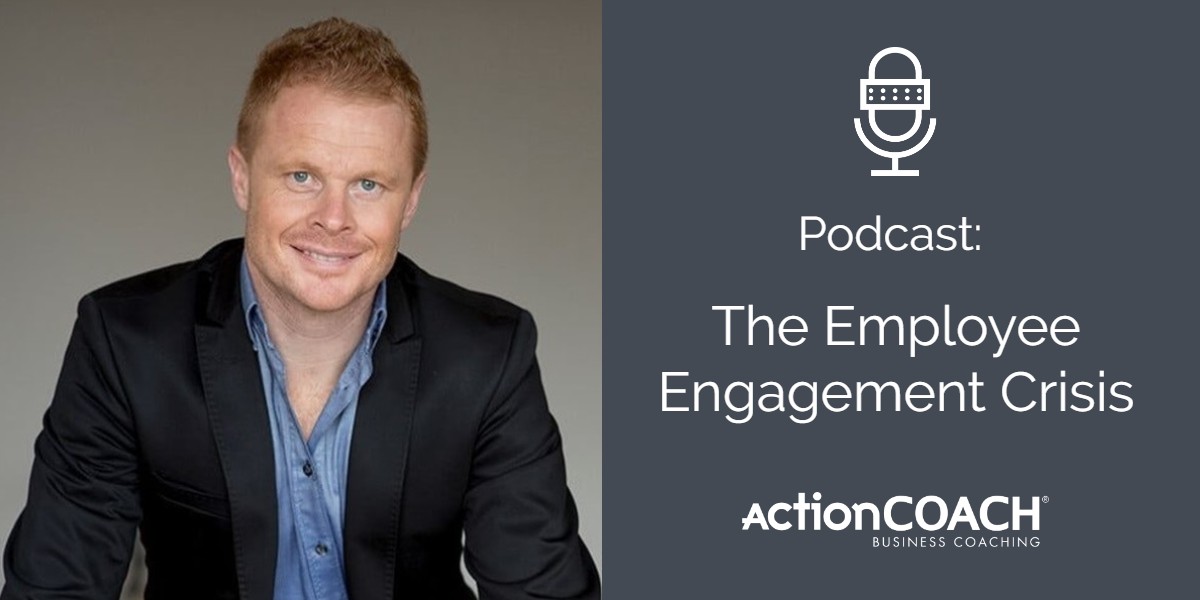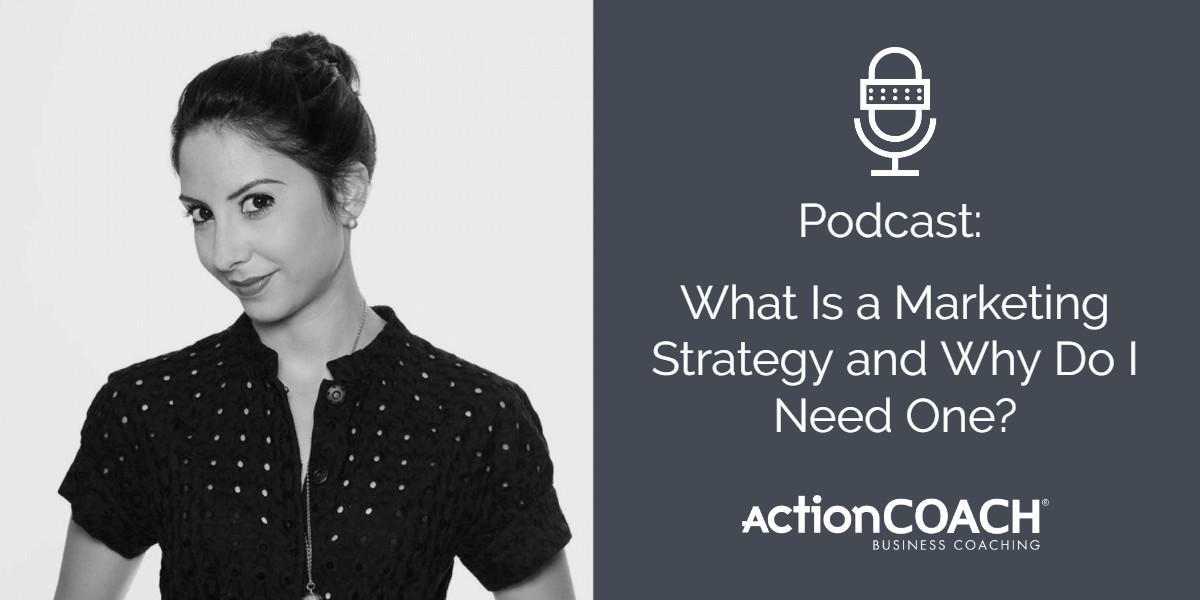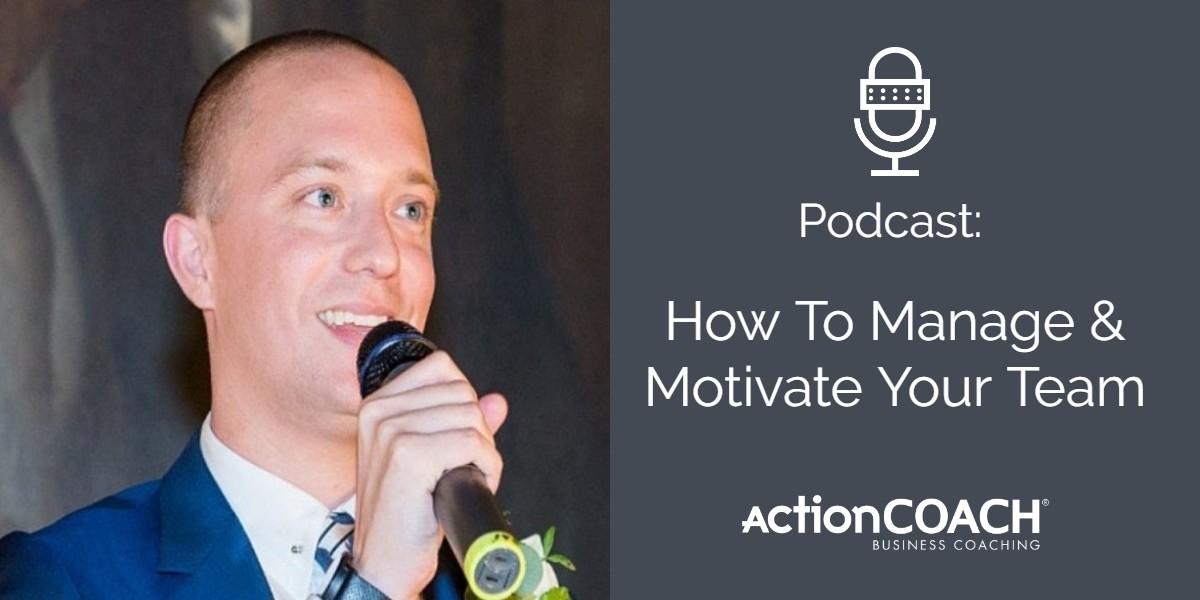Podcast: Using The Science Of Recruitment To Make Better Hires
Podcast: Play in new window | Download
Making a bad hire can cost you £1000s.
And consistently hiring talented, self-motivated people is the single most important ingredient to long term business success.
With that in mind… how much do you know about the science of recruitment?
We invited business psychologist Ben Williams to talk about a tool that we think SME business owners should be paying a lot more attention to – psychometric testing.
Click the play button above to listen.
Episode highlights
2:35 Why should I use psychometric tests in my business?
4:11 Which basic psychometric tests should you consider using first?
6:01 What does the scientific evidence say about the reliability of these tests?
8:24 How does all this apply to recruitment?
10:08 When to rely on psychometric tests versus gut instinct
Transcript
Announcer: Hello and welcome to the The Business Growth Agency podcast, the home of short, highly actionable guides that help you and your business to grow. In episode number six [correction: actually number 8], we talk to a business psychologist, Ben Williams, from the company Sten 10. Ben teaches us how we can use tools and tests from the world of psychology to improve the way we hire, train, and understand our teams. In this podcast, you will find out why traditional interviews aren’t as effective as you think, when you should and shouldn’t use your gut in a hiring situation, and much more. Enjoy.
Margarida: Welcome, Ben. Tell us a bit about yourself and your journey so far.
Ben: I’m a business psychologist, also called an occupational psychologist. I run a small business called Sten 10. We focus on assessment design. I guess, how did I get here? I tried on a number of different hats, as it were, relating to the world of assessing humans’ psychology. I began after my studies with a little bit of time in the prison service, not as a guest of her majesty, but in the forensics psychology department looking to profile offenders and helping them to overcome some of their addictions. That kind of environment, I decided, wasn’t really for me. Perhaps, I should have undergone a psychometric test myself before deciding on that.
I thought actually let’s move into the business world because I can still deal with the full spectrum of human psychology, whether it’s personality, motivation, behaviour. It’s just within a more corporate setting, which is quite interesting, and there’s a lot more variety. Also, I guess you’re dealing with people who are slightly more, how shall we say, regular than in the prison community. What I did then was I started work at a large consultancy firm called SHL, where I learned the ropes. I trained dozens, if not hundreds, of HR professionals in how to interpret psychological tests within the workplace.
Then after another couple of job moves, I went freelance. I was freelance for around seven years. I had a young family and then I started thinking what next? I keep on doing this until I retire, but actually let’s try and make something a little bit bigger than myself. Let’s get a small team around me, and that was the very beginning of Sten 10, which has now has been running for five years.
Margarida: Why would I want to use psychometric tests in my business?
Ben: It’s a good question. I think I would have a question in response to that. I would be asking you what people challenges are you facing in your business? Is it that you’ve got a recruitment challenge? You’re not sure how to get the right people into the positions. Is it that it’s a development challenge? You’ve got people who you know need to get better in certain areas, but you’re not quite sure how to start that discussion and how to track their progress. Maybe it’s around retention, you have quite a high employee turnover, and you’re not sure why.
All of these areas, psychometrics can help. I think that some of the main reasons that I hear clients telling me they do use these tests are that they provide a fair, objective, and consistent measure of people’s personality, behaviours and motivation at work. They’re untainted by unconscious bias, or certain prejudices, or preferences that managers have when making these decisions. They measure relevant skills to the job, so if you’ve got a good understanding of what it takes to be good at your job, this is your path to actually assessing that. There’s a lot of scientific evidence as well. A lot of scientific evidence compares people’s performance on these tests with how they do on the job, maybe two or three years down the line. There’s a lot of convincing data that says these are the best ways of doing that.
I guess the final reason – they could also be quite cost effective. Rather than needing to interview dozens and dozens of people who are potentially unsuitable for a job, you could give them a test and sift out 20 or so and only see those very most appropriate in a face-to-face setting.
Margarida: If I have never done anything like this before, what psychometric tests should I consider using first?
Ben: Part of that would depend upon your answer to that early question as to what your aims and objectives are for using them. Really, they fall into two categories. You’ve got tests of personality, motivation, and interests, which we would call as a techie term, test of typical performance. These are tests where there’s no such thing as a right or a wrong answer, but it will just give you an overview of what that person is like to work with, to interact with.
Now if your challenge is that you’ve maybe got some team conflict and you want to help to resolve that by talking about differences between personality types, I would say a personality questionnaire would be perfect for that. Instead, your challenges may be more around recruitment. You say we’ve got a lot of people applying. I haven’t got time to sit down and sift through them all. I would recommend starting with an ability test instead. Ability tests are quick to administer, quick to interpret, and they are the single best predictor of performance in the job, even more so than a personality questionnaire. That’s where you get the most bang for your buck in using an ability test to get down the numbers.
I had a little think about what I would recommend to you because a lot of these tests require training to access, so the ones that are worth their salt either require you to be trained, or someone in your organization, or to get an external expert, such as myself to come in and help. There is one called the strengths profile that you can get at www.strengthsprofile.com, which doesn’t require training to complete. I think it provides a really nice introduction into personality assessment because it talks about things like your strengths, your weaknesses but also where your untapped strengths might be that aren’t being used to their full that could make you to flourish more at work. I would recommend that one. I’m not in any way affiliated with them, either. That’s not a plug.
Margarida: What does the scientific literature say about the validity of these tests?
Ben: We look at validity from a number of different perspectives. Maybe if I run them through from the least impressive through to the most. Faith validity is the type of validity that some people will cite when using things like handwriting analysis or star signs to recruit. That’s the use of tests that don’t really have any obvious link to the job. People just believe that they work. There is no scientific evidence for a lot of these measures, like handwriting analysis, like star signs to say that they relate in any way to your problems in the job.
As you start to go to more stringent measures of ability, you’ve got things like face validity. Does it look right? Content validity, which says, well, if you’ve analysed your job thoroughly, you know that, let’s say, your call centre employee needs to be bright, engaging, detail focused, and conscientious. Then if you choose tests to measure that, that’s going to be a good measure of success. That’s, actually in the UK, the minimum form of validity that’s legally defensible. You have to have shown you’ve got some understanding of your job before you go off and start choosing tests.
Right at the top end, so the things that would be investigated by academics and researchers at universities and the like, you have criterion validity. What this looks at is to what extent do these test results predict real world outcomes. There is a piece of research that was done by Schmidt and Hunter a while back, which looked at lots of different studies and collated them all together, all different selection methods, and arranged them on a scale from least good to best. Ability tests, so verbal, numerical, logical reasoning, came out as close to perfect as we’re ever going to get but not quite perfect but still very good predictor of performance.
Then you’ve got things like assessment centres. You’ve got things like situational judgment tests. Things like your traditional interviews, so walk me through why you’re a good fit to this job, tell me about your CV, tend to be quite poor predictors of performance in the scientific literature. They’re very subject to your unconscious biases and preferences. They don’t tend to perform so well. Likewise, things like number of years experience or your educational qualifications that also doesn’t tend to predict performance in the job very well.
The scientific literature is agreed that these types of assessments are the best you can get to predict performance, but still, nothing is fool proof. There will always be the occasional person that slips through and perhaps they shouldn’t have done.
Margarida: How does all this apply to recruitment?
Ben: In the recruitment setting, I would probably see it as two stages. You’ve got the early stages in recruitment where you’re looking to sift people out who are unsuitable. You might use an ability test to see if they’ve got the basic verbal or numerical reasoning you need in your job. Also, there are some quite interesting types of tests called situational judgment tests where you’ll present people with little hypothetical scenarios and ask how they would behave in that situation. Those have shown to be quite predictive of performance, but they also serve a good second purpose because they let the job applicant decide is this job for me.
I did a bit of work recently with a large oil company to recruit cadets to go onto their oil ships, their oil vessels. Some of the things that people left the job for were things like long time at sea away from home, personal crisis that might come up when you’re out at sea, so maybe you’re having relationship problems or bereavements. In the SJT, situational judgment test, we put some of these scenarios to them and asked how they would feel and how they would act. Actually, that allowed people to self-select out at a pretty early stage. I think once you’ve got the numbers down, and you’re onto the cream of the cream that get through to your face-to-face interview, what they add then is extra colour.
Let’s say you’ve got a personality profile for someone that seems to fit broadly but maybe there is some concern about their attention to detail or they’re willingness to speak openly when they feel stressed or whatever that might be. You can then probe that at interviews. You can say, ah, in your profile you told me that you find this type of scenario quite stressful. Tell me more about that. Tell me about how you behaved in your last job when you faced that. It provides a springboard for a discussion in a way that just going in there cold they might not be so open to discussing these areas.
Margarida: Isn’t intuition and gut instinct important? In what situations should I rely on testing versus gut instinct?
Ben: This is a question I get quite a lot around gut instinct and intuition. I think there are probably two components of what makes up gut instinct. One, I think is perfectly valid. Over the years of experience you have working in a particular sector, just in the workplace, working with others, judging what makes a good or a poor worker, is going to form the basis of your gut instinct. What I would say, from a legally defensible point of view as well as good branding and PR, is that you want to be able to give people feedback about why you rejected them or why you accepted them.
For that type of gut instinct, I think it’s just a case of bringing it back to the surface. If you say my gut instinct tells me this person isn’t right for the job, then challenge yourself to think why. What is it that’s making me think they’re not right? It’s probably something perfectly valid. It might be that their CV was poorly written, full of spelling mistakes, or they arrived slightly late for the interview and then gave very superficial answers to your questions, or they avoided eye contact for the entire discussion. That can all be very relevant, and I think that can be used in conjunction with testing very effectively.
I think the thing to be careful of is when gut instinct might actually just be a reflection of your own unconscious bias. There’s a lot of research that says we do tend to be attracted to people who are more similar to us. Let’s say you’re going up to the interview room. Someone tells you that they’ve just been to watch the football, and it happens to be your favourite team that they’ve just gone to see. You are very likely to interpret everything they tell you in a more positive light than someone who on the walk up is very different to you. Maybe they are a different gender, a different age, a different ethnicity, completely different interests. You don’t feel that spark of rapport with them.
That doesn’t mean that they are any less able to do the job, but what you could call gut instinct then is actually is just an unconscious bias, and it shouldn’t perform part of your selection decision. It’s a very long answer to your question, Margarida, but I think a lot of the time gut instinct is valid, but I would just encourage people to bring it to the surface and find out what it’s based upon.
Margarida: Thank you very much, Ben.
Announcer: If you’ve enjoyed this podcast, and you want us to make some more then do let us know. Write us a review on iTunes or leave a comment on The Business Growth Agency Facebook page. Thanks for listening and join us again next time.




